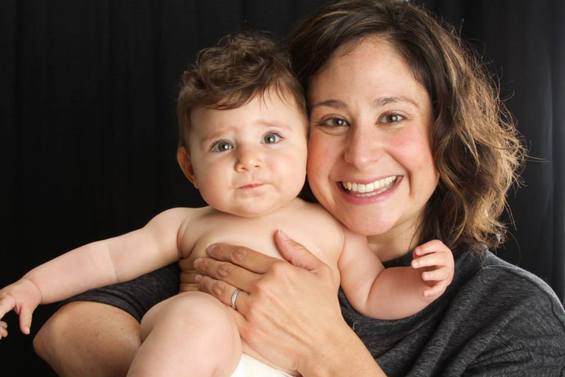This month as I think about kavod (respect)—about appreciating those around you and understanding them—I think about how difficult a time I had incorporating my husband’s Jewish traditions into our household and family life. I know firsthand the difficult conversations that occur in a relationship with someone from a different religion, so when I first started dating my husband, I was relieved, thinking that because we are both Jewish, I would be able to avoid the heart-wrenching conversations about our future children’s religion, which holidays we would celebrate, and so many other deeply personal topics. I assumed that those conversations simply didn’t need to happen.

The first time I faced this difference between us was during Rosh Hashanah services. We had gone with his family to the services at his childhood temple. I walked out afterward feeling bewildered and betrayed, like I had just witnessed something keenly wrong and out of place. Gone were the serious faces and comfortable Hebrew chanting I knew—organ music and English text replaced it. And when I joked that he went to a “fake” temple, he cringed. This particular experience began leading me down a long path of learning how to respect my husband’s Jewish upbringing. I wasn’t “more” Jewish simply because I had a more conservative Jewish upbringing. As hard as it was for me to admit, my way was not necessarily the right way.
I still struggle with the differences in our customs and practices. As we embark on interweaving our Jewish cultures and traditions into our household, I often think of a story I heard while conducting an interview for a Jewish play about interfaith and cross-cultural couples. The purpose of the play was to see how couples navigate their different backgrounds and customs. In this case, we interviewed a Reform Jew and an Orthodox Jew who were recently married. Their story highlighted how a difference in practice is sometimes extraordinarily wonderful and humbling.
One partner was from Puerto Rico and the other from Israel. Upon moving to Cambridge, they decided to recognize Shabbat in their new home together. They said the prayers and all was going smoothly until they sipped from the kiddush cup. The Israeli was outraged that wine was not in the kiddush cup; instead there was rum, as was the custom in Puerto Rico. For a long time, the Israeli would not accept rum in the kiddush cup, insisting that it was not the “fruit of the vine.” The Puerto Rican kept repeating that in his country, wine was not readily available, but rum was plentiful. It took many conversations for the Israeli to accept that his custom was not the “right” custom, just as it took me a long time to understand that organ music is acceptable in certain temples and services.
I hope that my husband and I are instilling a deep sense of kavod and honor in my daughter, and that her reaction to customs different from her own is drastically different from my own. Nowadays, my husband and I blend our two family’s histories into one. We use the candlesticks I purchased on my trip to Israel and sing the prayers using the melodies with which he is familiar. It’s not much, but it is our first step in respecting each other and creating something new and wonderful for our family.
This post has been contributed by a third party. The opinions, facts and any media content are presented solely by the author, and JewishBoston assumes no responsibility for them. Want to add your voice to the conversation? Publish your own post here. MORE
